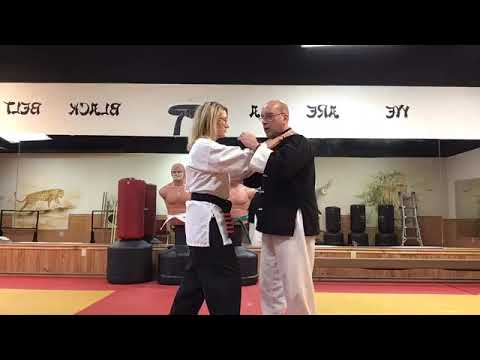Womens Self Defense
Holistic Approaches to Self-Defense: Empowering Yourself Inside and Out

Womens Self Defense
Protecting Yourself: The Importance of Personal Protection Laws

In a world where personal safety and security are paramount, understanding personal protection laws is more critical than ever. These laws not only empower individuals to defend themselves but also establish the boundaries within which that defense is legally acceptable. This article delves into the importance of personal protection laws, their impact on society, and how individuals can navigate these laws to ensure their safety while remaining within the law.
What Are Personal Protection Laws?
Personal protection laws encompass a variety of statutes governing self-defense, the use of force, and the carrying of weapons. These laws can differ significantly from one jurisdiction to another and can include provisions on:
- Self-Defense: The right to protect oneself from harm or the imminent threat of harm.
- Defense of Others: The right to intervene and protect another individual from harm.
- Defense of Property: The right to protect one’s property from theft or damage.
- Concealed Carry Laws: Regulations regarding the legal carrying of concealed firearms.
Understanding these laws is essential for anyone looking to take steps toward personal safety, as misinterpretations can lead to severe legal repercussions.
The Importance of Personal Protection Laws
1. Empowerment of Individuals
Personal protection laws are designed to empower individuals, giving them the legal right to defend themselves in situations where they perceive a threat. This fosters a sense of security and encourages people to take proactive steps in safeguarding their own lives and the lives of others.
2. Legal Structure for Self-Defense
These laws provide a framework within which self-defense is considered justifiable. Knowing the specific legal boundaries helps individuals avoid unnecessary confrontation and legal issues. For instance, many jurisdictions recognize the "duty to retreat" before using lethal force, while others employ the "stand your ground" principle, allowing individuals to use force without first seeking an alternative escape route.
3. Encouragement of Responsible Gun Ownership
Personal protection laws often encompass regulations regarding firearms and other weapons, promoting responsible ownership. Background checks, training requirements, and safe storage laws help prevent accidents and misuse, contributing to overall public safety.
4. Deterrence Against Crime
The presence of personal protection laws can act as a deterrent against criminal activity. Knowing that individuals have the right to defend themselves may dissuade potential offenders from committing acts of violence or theft, creating a safer community.
5. Recourse in Legal Situations
In the unfortunate event that someone is forced to defend themselves, personal protection laws provide a legal basis for their actions. If faced with charges, individuals can reference these laws in their defense, offering clarity on the legality of their response.
6. Community Safety Initiatives
Personal protection laws contribute to overall community safety by encouraging self-defense education and awareness programs. Institutions may offer training in self-defense techniques, firearm handling, and conflict resolution, helping individuals feel more prepared for potential threats.
Navigating Personal Protection Laws
1. Research Local Laws
Laws vary widely by location, so it’s crucial to understand the specific regulations in your area. Local law enforcement agencies, legal professionals, and reputable online resources can provide valuable information.
2. Take Training Seriously
Consider engaging in classes that cover self-defense techniques, firearm safety, and legal aspects of personal protection. Understanding how to de-escalate a situation, along with knowing when and how to use force, is essential.
3. Stay Informed
Personal protection laws can evolve, and staying updated on changes is key. Participating in community forums, subscribing to legal newsletters, or joining advocacy groups can help individuals remain informed.
4. Consult Legal Professionals
Whenever in doubt, seek legal counsel to understand the implications of personal protection laws fully. A knowledgeable attorney can provide personalized advice based on individual circumstances.
Conclusion
Personal protection laws play a vital role in empowering individuals, creating a sense of safety, and shaping community dynamics. By understanding and navigating these laws effectively, individuals can protect themselves and contribute to a safer society. In an unpredictable world, knowledge and preparedness are the best defenses we have. Ultimately, the importance of personal protection laws cannot be overstated; they represent not only legal rights but also the fundamental human right to live safely and securely.
Womens Self Defense
#Women’s self-defense, A couple of techniques for a reversal from an aggressor.

When confronting an aggressor, there are a couple of effective techniques to consider. The first technique involves creating a …
source
Womens Self Defense
Get Empowered: Why Every Woman Should Consider Self-Defense Certification
Absolutely! Let’s dive into the topic. Please provide the article title you’d like me to write about, and I’ll create a detailed piece for you!
-

 Womens Self Defense11 months ago
Womens Self Defense11 months agoNew Legislation Empowers Women to Defend Themselves
-

 Self Defense News1 year ago
Self Defense News1 year agoShe was convicted of killing her abusive boyfriend. Now a Maple Grove woman is home awaiting a new trial.
-

 Self Defense News1 year ago
Self Defense News1 year agoSelf-Defense for All: The new Gracie Jiu-Jitsu Pasadena is for everyone | Online Features
-

 Womens Self Defense1 year ago
Womens Self Defense1 year agoTop 5 Self-Defense Techniques Every Woman Should Know
-

 Womens Self Defense8 months ago
Womens Self Defense8 months agoUnderstanding State-by-State Variation in Self Defense Laws
-

 Womens Fitness1 year ago
Womens Fitness1 year agoXtreme Bodyweight HIIT (Lots of Jumping!) | Joanna Soh (Fio Series)
-

 Womens Preparedness1 year ago
Womens Preparedness1 year ago10 essential skills for surviving in the great outdoors
-

 Womens Preparedness1 year ago
Womens Preparedness1 year agoEmpower Yourself: A Guide to Female Survival Planning



